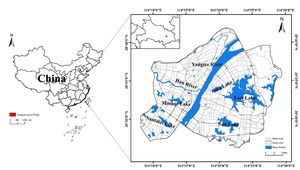U.S. President Donald Trump delivered on his threat to impose sweeping tariffs on Canadian goods on February 1, 2025, triggering a trade dispute labeled as harmful by Alberta's premier, Danielle Smith. The tariffs, which take effect on February 3, will enforce a hefty 25 percent duty on most Canadian imports, alongside a reduced 10 percent duty for energy products.
Smith expressed significant disappointment with the announcement, stating, "This decision will harm Canadians and Americans alike and strain the important relationship and alliance between our two nations." She affirmed Alberta's commitment to collaborating with the federal government on a response, emphasizing, "Alberta will do everything in its power to convince the U.S. President and Congress, as well as the American people, to reverse this mutually destructive policy." The Alberta premier also indicated her intention to use Canadian import tariffs on U.S. goods strategically, aiming to mitigate costs for Canadian consumers.
The unexpected implement of tariffs sparked strong responses from other Canadian leaders, including Ontario Premier Doug Ford. Ford remarked, "It's unjustified, unfair, and frankly illegal," underscoring the potential ramifications for both economies. He highlighted Canada and the U.S.'s close trading relationship, making clear, "This is going to hurt Americans, it's going to hurt Canadians; we're going to see inflation happen down in the U.S. and Canada, and it's unjustified." Ford confirmed Canada would retaliate but refrained from detailing specific measures, leaning on the federal government for broader strategies.
Analysts and industry experts projected severe economic impacts from the tariffs. Deborah Yedlin of the Calgary Chamber of Commerce commented, "When you look at the cross-border trade... There’s nobody that's not going to be affected by this, and it doesn’t need to happen." Concerns extended to small businesses, with Calgary Economic Development CEO Brad Parry stating, "These sweeping tariffs will disrupt supply chains, increase business costs, and inject instability."
The Canadian Association of Petroleum Producers (CAPP) voiced disappointment as well, saying tariffs undermine the typically beneficial relationship between the two countries. CAPP President Lisa Baiton noted, "These tariffs undermine our mutually beneficial relationship and are likely to increase costs and inflation for American consumers, damaging the economies of both countries." Gary Mar, president of the Canada West Foundation, explained how the tariffs on Canadian oil will inevitably lead to higher gasoline prices for U.S. consumers, saying, "It’s impossible not to see an increase in the price of gasoline whenever you put a tariff on Canadian oil."
Ford also criticized Trump's rationale for the tariffs, which tied them to fentanyl trafficking and illegal immigration, especially noting Canada’s relatively insignificant contribution to the fentanyl issue. He argued, "What President Trump underestimates is the resilience of the Canadian people. No matter what political stripe we’re united." Amidst the trade tension, various premiers expressed their intention to work collaboratively against the tariffs.
Some provinces devised specific countermeasures. Nova Scotia's premier mentioned limiting American businesses' access to provincial procurement, and British Columbia's Premier, David Eby, instructed his province to prioritize Canadian goods and services. Ontario's Ford and Newfoundland and Labrador's Premier, Andrew Furey, echoed calls for strong, united responses, characterizing the tariffs as historical attacks on shared Canadian values.
Canadian Prime Minister Justin Trudeau aimed to assure citizens of the government's resolve against the U.S. tariffs, indicating plans for substantial retaliation with considerable tariffs on U.S. goods. He stated, "If President Trump wants to usher in a new golden age for the United States, the best path is partnership with Canada, not punishment of our country." Trudeau stressed the importance of diplomacy and unity among provinces to effectively manage the crisis.
Despite the looming tariffs, Smith remained hopeful about preserving trade relations. "There is, after all, no economic justification for tariffs imposed on any Canadian goods," she argued, advocating for strategic responses aimed at minimizing harm to Canadians and maximizing impacts on American trade.
The situation remains dynamic, with Canadian leaders acknowledging the heavy emotional ramifications of the tariffs on both nations. The economic fallout from the Trump administration's tariffs, regardless of retaliation efforts, signifies heightened tension and stress for businesses and consumers across the borders. The financial repercussions beckon immediate attention as they shift the focus to cooperation, unity, and resilience moving forward.



